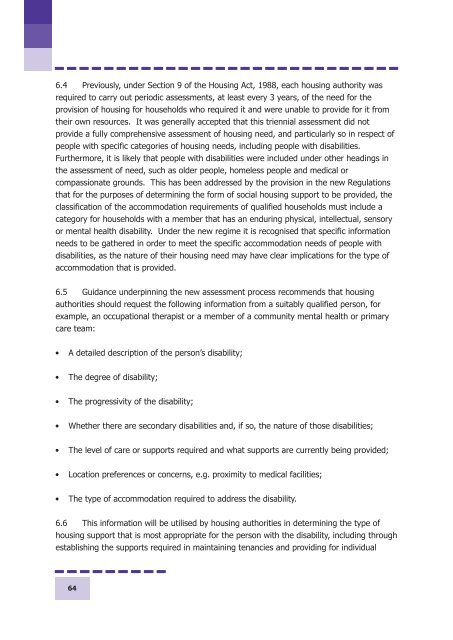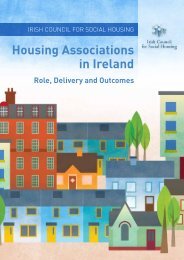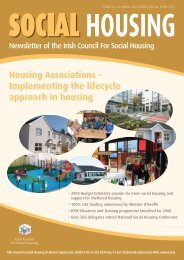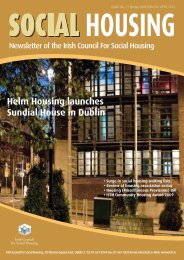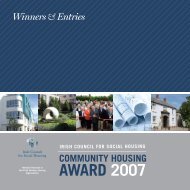National Housing Strategy for People with a Disability 2011 - 2016
National Housing Strategy for People with a Disability 2011 - 2016
National Housing Strategy for People with a Disability 2011 - 2016
Create successful ePaper yourself
Turn your PDF publications into a flip-book with our unique Google optimized e-Paper software.
6.4 Previously, under Section 9 of the <strong>Housing</strong> Act, 1988, each housing authority wasrequired to carry out periodic assessments, at least every 3 years, of the need <strong>for</strong> theprovision of housing <strong>for</strong> households who required it and were unable to provide <strong>for</strong> it fromtheir own resources. It was generally accepted that this triennial assessment did notprovide a fully comprehensive assessment of housing need, and particularly so in respect ofpeople <strong>with</strong> specific categories of housing needs, including people <strong>with</strong> disabilities.Furthermore, it is likely that people <strong>with</strong> disabilities were included under other headings inthe assessment of need, such as older people, homeless people and medical orcompassionate grounds. This has been addressed by the provision in the new Regulationsthat <strong>for</strong> the purposes of determining the <strong>for</strong>m of social housing support to be provided, theclassification of the accommodation requirements of qualified households must include acategory <strong>for</strong> households <strong>with</strong> a member that has an enduring physical, intellectual, sensoryor mental health disability. Under the new regime it is recognised that specific in<strong>for</strong>mationneeds to be gathered in order to meet the specific accommodation needs of people <strong>with</strong>disabilities, as the nature of their housing need may have clear implications <strong>for</strong> the type ofaccommodation that is provided.6.5 Guidance underpinning the new assessment process recommends that housingauthorities should request the following in<strong>for</strong>mation from a suitably qualified person, <strong>for</strong>example, an occupational therapist or a member of a community mental health or primarycare team:• A detailed description of the person’s disability;• The degree of disability;• The progressivity of the disability;• Whether there are secondary disabilities and, if so, the nature of those disabilities;• The level of care or supports required and what supports are currently being provided;• Location preferences or concerns, e.g. proximity to medical facilities;• The type of accommodation required to address the disability.6.6 This in<strong>for</strong>mation will be utilised by housing authorities in determining the type ofhousing support that is most appropriate <strong>for</strong> the person <strong>with</strong> the disability, including throughestablishing the supports required in maintaining tenancies and providing <strong>for</strong> individual64 64


